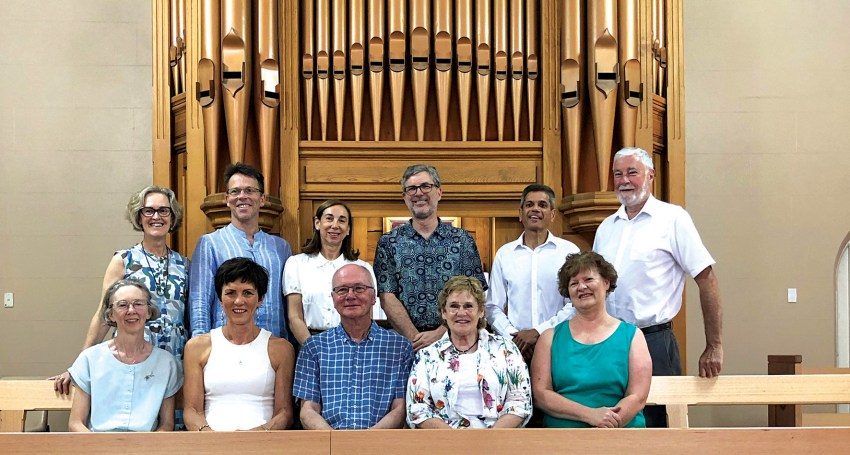Finding new talent
Local
When St Ignatius Norwood choir leader Veronica Ziesing asked the congregation to consider making a Lenten offering by joining the music preparations for Easter, Rosemary McGrath was quick to take up the offer.

“I’d always loved singing so I didn’t need a second invitation,” she said.
That was 35 years ago and Rosemary has been part of the choir ever since, except for a two year break while she and her husband and three sons lived in Nottingham, England. Rosemary migrated to Australia at the age of seven. The family didn’t have enough money to learn instruments but they all sang – in the car, at church and around the home.
Advertisement
“At Semaphore we had the Polish choir at Mass and they were wonderful to behold, such harmony, such power, such spirit,” she recalled.
At school the nuns “just expected everyone to sing and so we did”.
At Loreto College Mother Lua had the whole school choir doing the Halleluia chorus with soloists doing their parts.
“Each year we entered the Eisteddfods with great results…the most beautiful group was the Madrigal Group composed of boarders. I almost couldn’t breathe the first time I heard them and joined as soon as possible.”
Rosemary’s passion for choir music hasn’t waned and she is a strong believer in the adage ‘when you sing, you pray twice’.
“For me there is a special touch to a spiritual thread with music in the Mass,” she said.
“Something unusually beautiful happens when you join your voice with others and get a combined sound.
“That sound is more than you can make and it cannot be as beautiful without your voice being there as well.”
But she is concerned about the difficulty in finding new choristers, particularly among younger people.
“Recently the choir leader arranged for the sopranos to sing the ‘Lord have mercy’ but one was doing the reading that week, one was in Sydney and one was introducing the Mass,” she said.
“Suddenly, there was only me left in the sopranos. Life happens and there is always a difficulty getting enough numbers.”
As baby boomers grow older and die, Rosemary said they will “leave a hole in Church culture unless we nurture the next rich group of singers and musical players”.
“It is a real worry that the next voices are not being heard, are not coming forward to bring their own wealth in vigour and talent to the sound of the Church,” she said.
“We really rely on too few to bring this particular element to Mass.
“Schools are already crowded in their curriculum. It cannot really be their responsibility to bring choristers to the parish. While it would be so good if young people from local schools brought their music to life in local parish Masses it really is each individual’s decision to find a way into the spirit of music in Mass.”
Advertisement
Rosemary said there was something special about being in a diverse group that comes together to make music.
“From so many different areas we come, drawn by the one truth that joins us all: loving your neighbour as yourself is part of what Jesus gave us.
“It gives a space where we can do something marvellous together with attentiveness to one another’s special gifts.”
There are physical benefits too: “Opening our lungs and bringing in life-sustaining breath that swirls around our lungs, bringing oxygen to our brains and muscles then taking the tired carbon dioxide out of our bodies. Together we become aware of syncopating our effort with everybody else in the choir.
“Our senses are drawn to the combined effort of the different groups: soprano, alto, tenor and bass, then the whole choir. Timing keeps us on the edge of our ability.”
Rosemary is grateful to the “living legacy of all who went before us who sang many of the same pieces of music over many centuries”.
“This is a gift from those in the past to us. We are charged with keeping it alive to ensure this gift goes to those who come after us. We are the torch bearers. With drums and singing we give it to the future.”












Comments
Show comments Hide comments